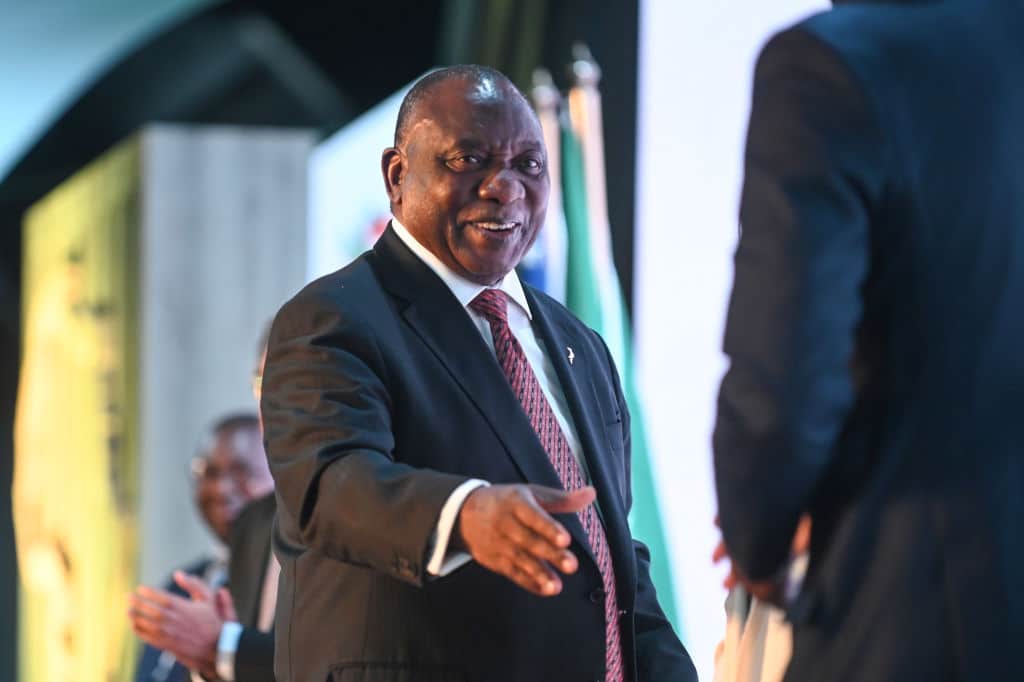The recent AGOA summit in Johannesburg beckoned calls for its extension beyond September 2025. With a backdrop of the ongoing Israel-Hamas conflict and US-Africa relations at a delicate juncture, the summit explored the potential reshaping of trade norms, eyeing a more balanced economic relationship.
The annual African Growth and Opportunity Act (AGOA) summit was held in Johannesburg, South Africa last week, amidst landmark changes, with calls for its renewal beyond the current expiry in September 2025. It was also announced that four African countries would be removed from the act.
AGOA, which allows African member states preferential access to United States (US) markets, has long been an economic boon to the continent, but the current summit took place against a backdrop of tension due to recent diplomatic spats between the US and South Africa, as well as the ongoing Israel-Hamas conflict.
AGOA, first established by the US Congress in 2000, provides duty-free exports to the US for many goods from member countries. As of last year, exports to the US under the act were valued at $16.5 billion, with South Africa taking the lion’s share. With the current iteration of the act set to expire in 2025, South African President Cyril Ramaphosa made clear his desire to see the trade deal renewed.
“We would like you to consider the extension and renewal of AGOA for a sufficiently lengthy period,” said Ramaphosa on the last day of the summit.
Loading...
His proposal of a renewal was matched by a statement issued by US lawmakers released on Friday, with House Foreign Affairs Committee chairman Michael McCaul stating, “Africa is on the precipice of an unprecedented demographic boom. The timely reauthorization of AGOA is important to provide business certainty and show the United States’ continued support towards Africa’s economic growth.”
However, Ramaphosa was also at pains to shift the balance of focus of the act moving forward, with historical trade, which often involves exporting raw materials to the US and importing manufactured goods into Africa – a relationship he would like to shift, highlighting the automotive sector in South Africa as one of note. “As we can already see, they have great use on the continent to produce the finished complete products such as vehicles and a whole number of others…”
Other notable changes of this year’s summit are the inclusion of labor union and civil society members, with representatives from some of South Africa’s largest trade unions being present.
“A renewed AGOA needs to include provisions to support compliance with good labor practices and penalize employers who flout labor laws,” said the Congress of South African Trade Unions (COSATU) in a statement on Friday. “[We are] heartened by the positive support we have received from the US labor movement which has a long history of solidarity with South African working-class struggles.”
The calls for renewal come amidst recent tensions between both South Africa and the US, as well as other African countries. AGOA membership, vetted by the US President, saw President Joe Biden announce that four countries would be removed from the act due to “non-compliance with AGOA eligibility criteria”; the Central African Republic (CAR), Uganda, Gabon, and Niger.
Over the last year, US-South Africa diplomatic relations were also strained by the secretive reported docking of the Russian vessel Lady R in December 2022, as well as more recent comments last month expressing solidarity with Palestine following Israel’s retaliation for the Hamas attacks on October 7. However, both of these challenges appeared to have been smoothed over diplomatically, with both countries on track for a renewal of the AGOA pact.
“When we say that AGOA is the cornerstone of our economic partnership we do not mean that in the abstract,” said United States Trade Envoy Katherine Tai in her closing remarks of the summit. “It has been a bedrock for improving the livelihoods of so many people across Africa… and it has the potential to do so much more.”
Loading...
